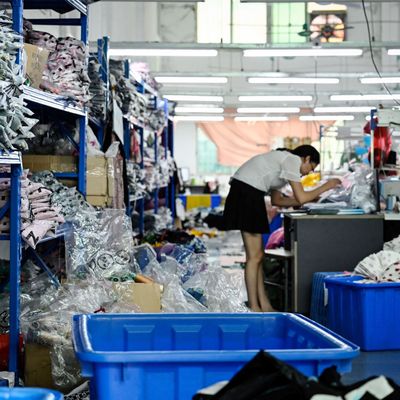As public awareness of plastic pollution rises, consumers are increasingly scrutinizing supermarket produce sections. While fruits and vegetables naturally come with their own protective layers, many grocery stores are adding unnecessary plastic packaging, even to individual items. This practice has led to backlash from shoppers who view it as an irresponsible waste of resources.
The Discovery That Sparked a Conversation

The controversy began when a shopper took to the “r/mildlyinfuriating” subreddit to express discontent over a local grocery store wrapping its produce in plastic. The post highlighted plastic-encased bell peppers, Brussels sprouts, leafy greens, and cucumbers, raising questions about the necessity of such packaging. In an odd twist, the store also offered unwrapped cucumbers and a selection of other produce, leaving shoppers puzzled about the rationale behind such inconsistent packaging practices.
One commenter expressed frustration, stating, “‘Should be f** illegal.’” Another chimed in, questioning the practical implications: “This would annoy me. First because of the unnecessary trash. Second because it reduces good visual inspection for mold, soft spots or deep gouges/wounds that’ll lead to spoilage.”
Why Plastic Waste is a Growing Concern

The backlash against plastic-wrapped produce taps into larger environmental issues. While some commenters suggested that the individual packaging could reduce the spread of illnesses or protect the food from damage, the downsides are significant. Customers often find themselves paying more for packaged items while also complicating the waste disposal process.
The statistics about plastic use are alarming. According to the nonprofit organization Plastic Oceans, nearly half of all plastics produced are intended for single-use applications, including plastic bags, food containers, and packaging. Once discarded, these materials largely end up in landfills, where toxic chemicals can leach into the environment and pose risks to wildlife.
Furthermore, plastic waste in oceans has catastrophic effects, killing millions of marine animals annually and causing harm through ingestion and entanglement. Although recycling efforts exist, with plastic recycling standing at 9% or lower, a vast majority of plastic items are more likely to be thrown away than recycled.
What Are Companies Doing to Address the Issue?

In response to growing concerns, some states and companies are taking action. For instance, California and Colorado have enacted statewide bans on plastic grocery bags, signaling a shift toward more sustainable practices. Additionally, select ShopRite locations in New Jersey have introduced bins for customers to recycle flexible plastic packaging, like chip bags.
In Canada, certain Walmart stores are experimenting with a program that sells food items in reusable containers. Should this pilot prove successful, it could revolutionize the grocery shopping experience and further accelerate the move away from traditional plastic usage.
Innovations and Alternatives to Plastic
As plastic packaging faces mounting scrutiny, several alternatives have emerged. The market is seeing innovative solutions such as bioplastics, fiber and paper-based packaging, as well as materials derived from seaweed and mushroom roots. Furthermore, edible coatings using plant-derived oils are being explored as a way to protect produce without contributing to plastic waste.
Yet, these sustainable alternatives are not yet widespread. In the interim, consumers can take proactive measures to reduce plastic use. Shoppers are encouraged to utilize reusable grocery bags, opt for unpackaged produce when available, and employ silicone food containers as substitutes for plastic options.
For those seeking additional guidance, subscribing to newsletters that focus on eco-friendly practices can provide useful tips on minimizing personal plastic consumption while simultaneously contributing positively to the environment.
As the conversation around plastic pollution gathers momentum, it becomes increasingly clear that both consumer awareness and corporate responsibility will play vital roles in addressing this pressing environmental challenge.
